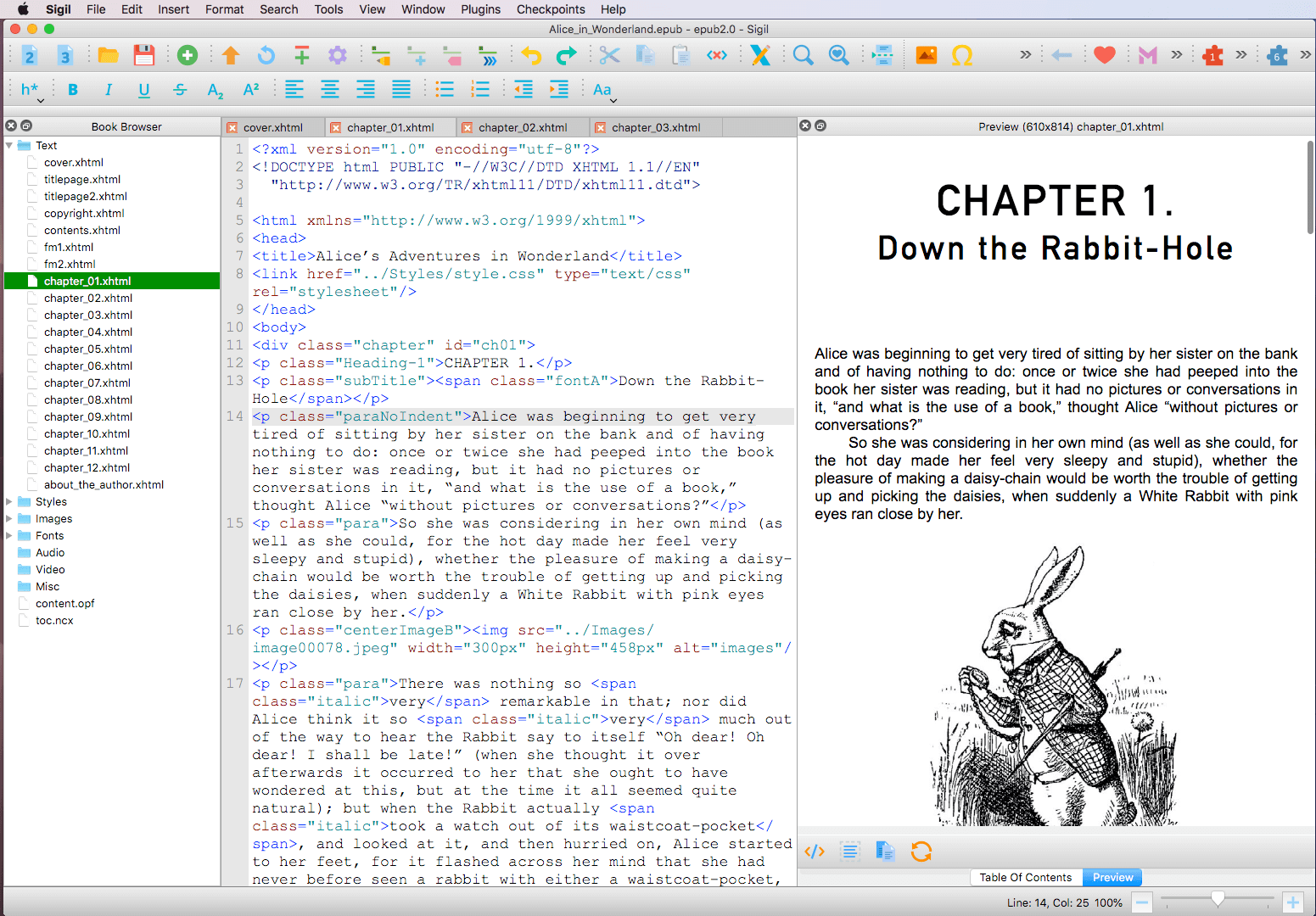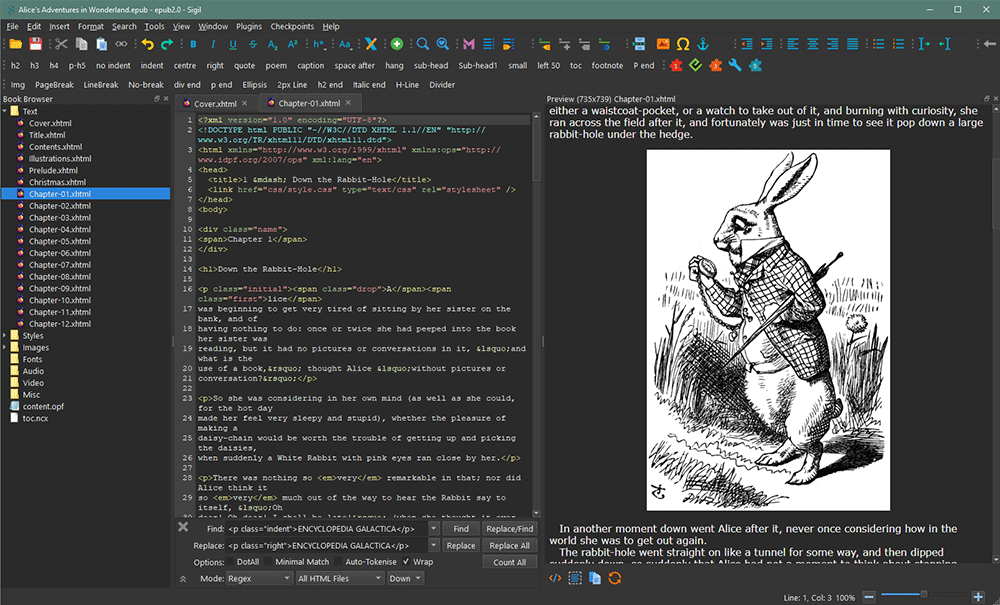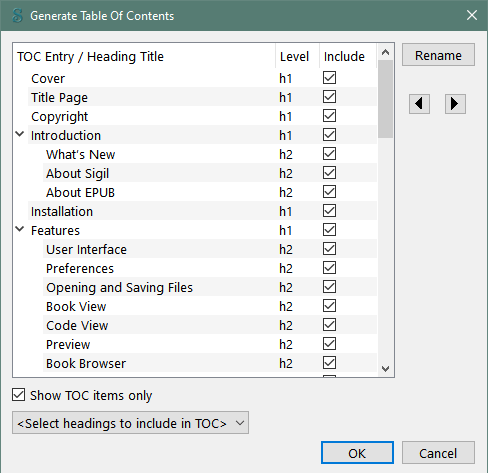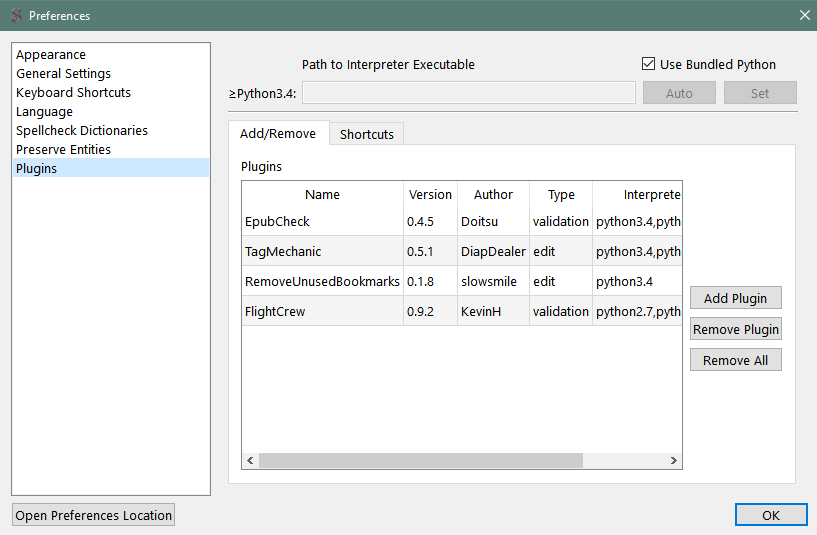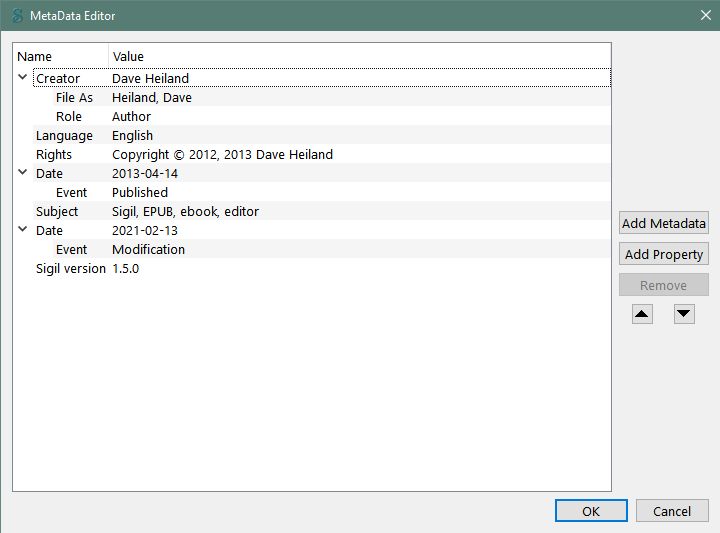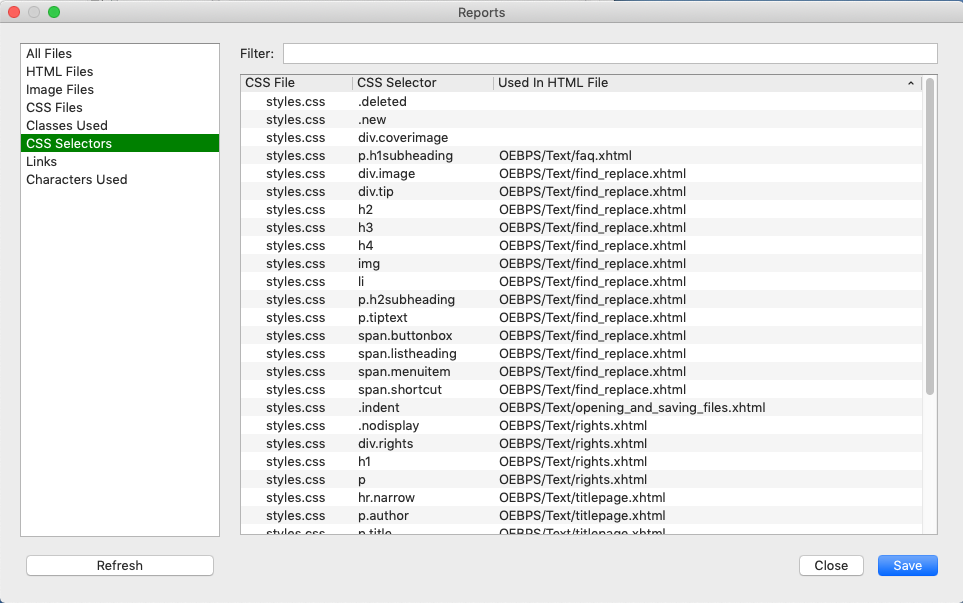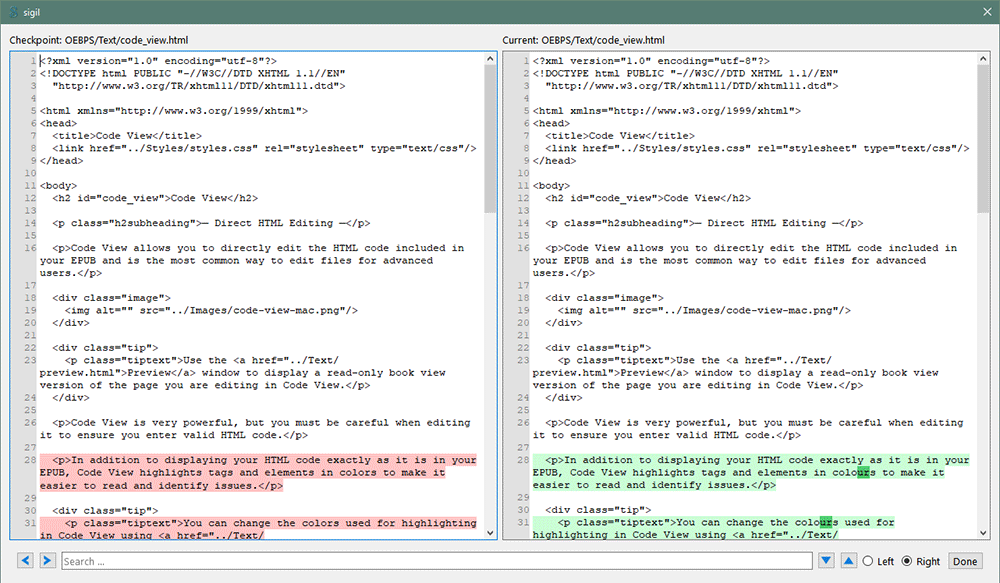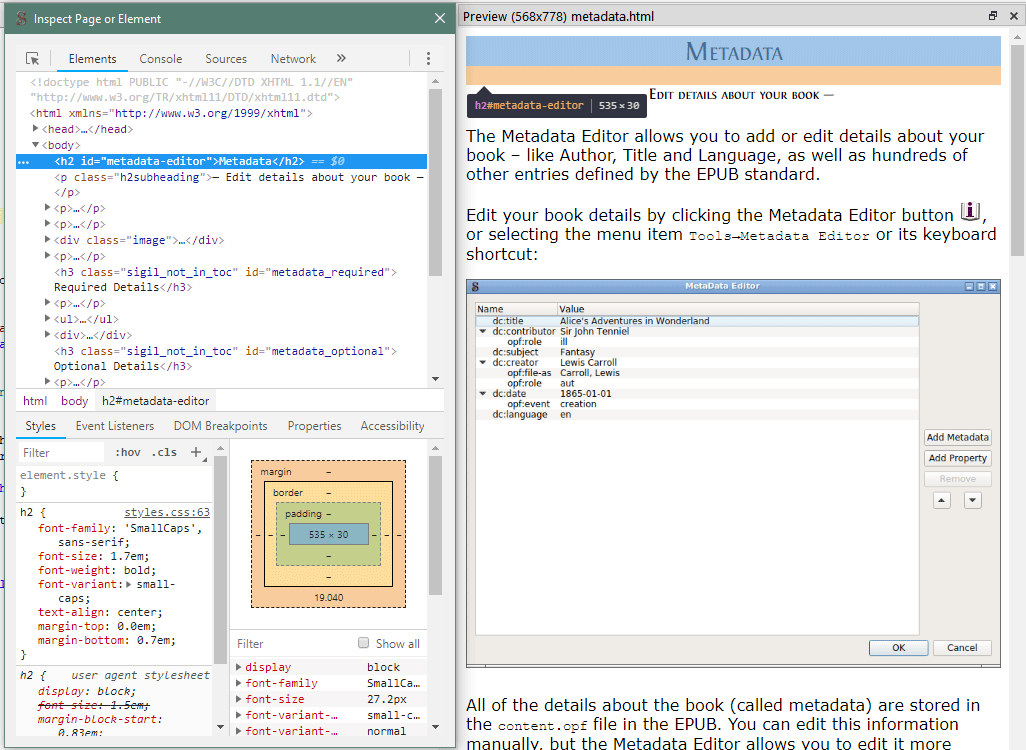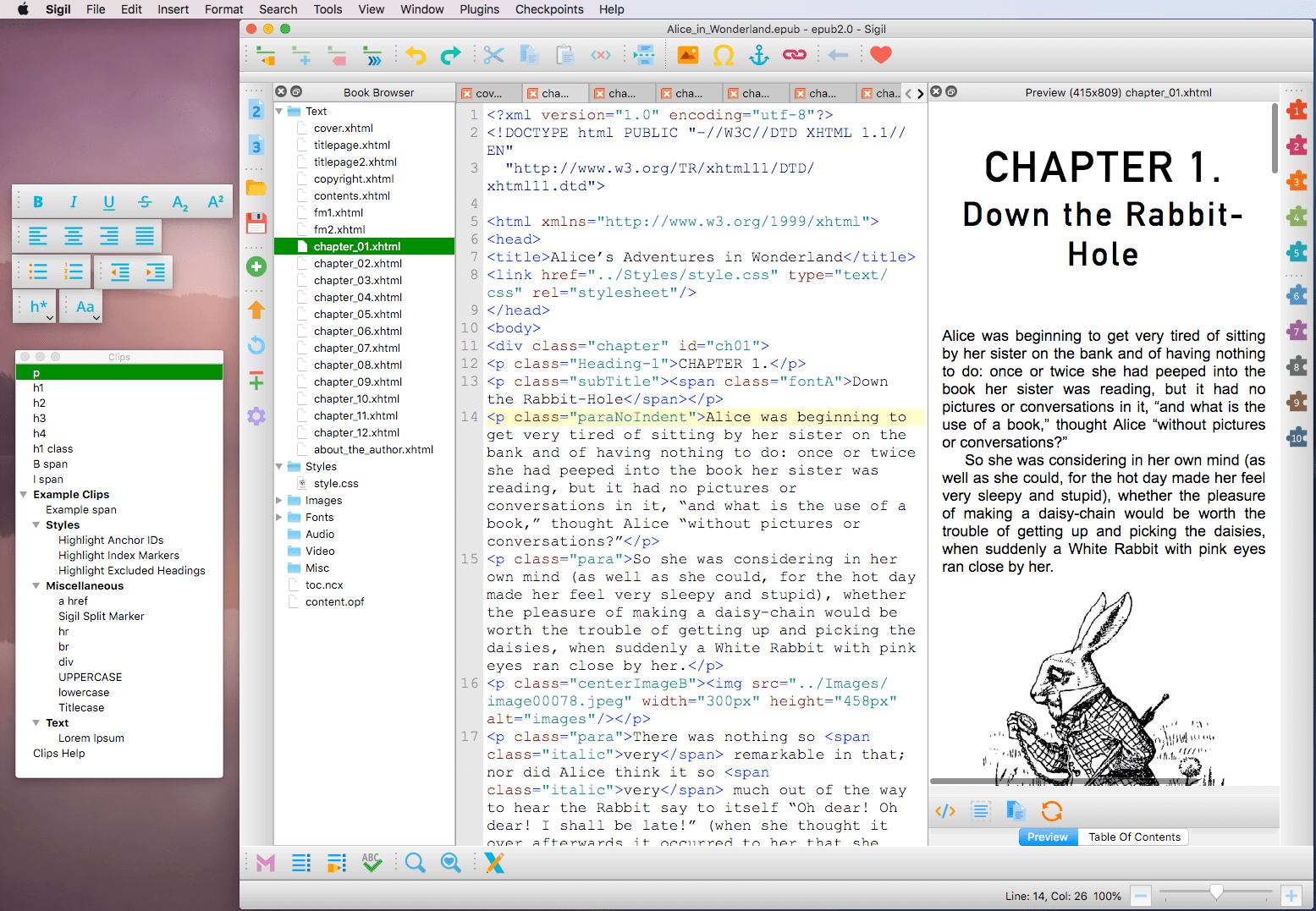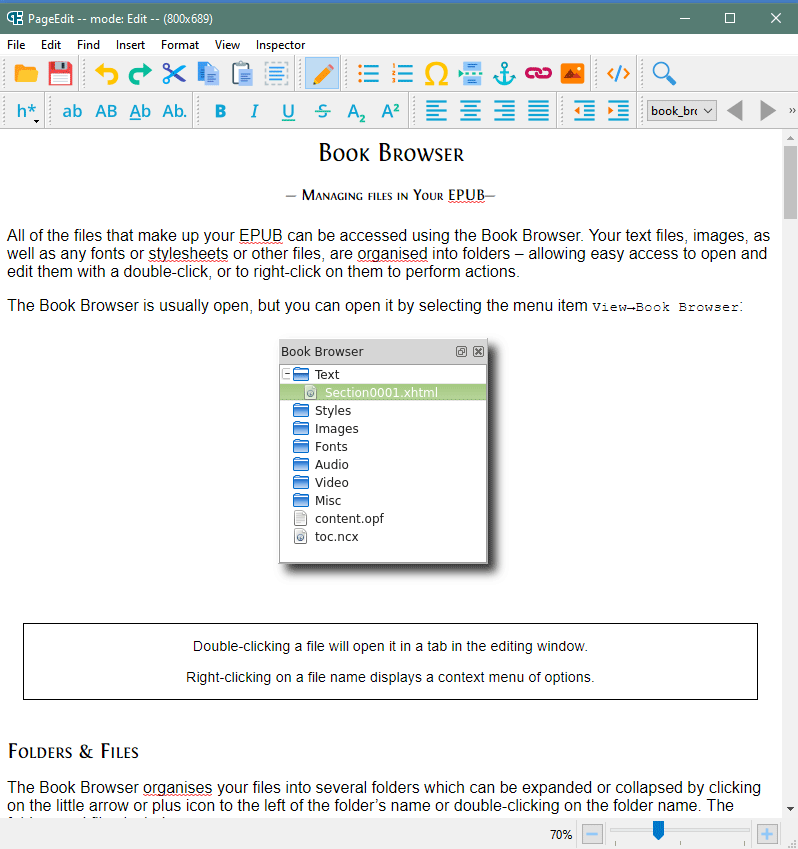Sigil is a free, open source, multi-platform ebook editor that uses Qt (and QtWebEngine). It is designed to edit books in ePub format (both ePub 2 and ePub 3).
-
Its website is located at http://sigil-ebook.com
-
Its current code repository is located at https://github.com/Sigil-Ebook/Sigil
-
Translations are located at https://www.transifex.com/projects/p/sigil/
-
Support forums are located at http://www.mobileread.com/forums Select Sigil from the list of main forums
-
Sigil Plugin Index (hosted by www.mobileread.com) at http://www.mobileread.com/forums/showthread.php?t=247431
-
Sigil User Guide is located at https://github.com/Sigil-Ebook/sigil-user-guide/releases/latest
Please do not use the issue tracker to ask questions or suggest new features. Both of the main developers of Sigil monitor the Sigil Forum at https://www.mobileread.com/forums. All questions and feature requests should be directed there so that other interested users can help or comment.
Issue tracking is intended for discussion around issues with the code. It is also intended for actual bug tracking.
Feature requests opened on the issue tracker will be closed.
For newer Linux systems like Ubuntu 20.04 (and its derivitives: like Mint 20), or Arch Linux, or Debian Unstable, you should be able to compile Sigil using repo-provided dependencies. Instructions for doing so can be found in:
For older Linux systems whose software repositories do not provide Qt5.10.0 (or higher), the detailed instructions for building/installing Sigil can be found in:
An up-to-date version of Sigil is available via flatpak on Flathub. So if your distro can use Flatpak, you can always use Sigil that way if your distro's Sigil package seems to be lagging too far behind.
Building using purely XCode is no longer supported on Mac OS X. The easiest way to build Sigil on Mac OS X is to use cmake 3.X and the XCode CommandLineTools.
Also because Sigil now embeds Python 3.11.3, see
docs/Building_A_Relocatable_Python_3.11_Framework_on_MacOSX.txt
for detailed instructions on how to build a fully relocatable Python 3.11.3 framework before building Sigil.
For official releases Sigil uses Qt6.5.2 plus official cve and local patches see:
Sigil master now supports building with Qt-5.10.X through to Qt-6.5.2. For older Qt5 see:
And finally to build Sigil itself see:
and for building Sigil under the older Qt5 see:
Sigil currently provides Windows installers for x86 and x64 and will only work on Windows 8 or newer. There's a Legacy installer that's suitable for Windows 7.
The latest Sigil versions are also typically available via the winget (Windows 10+), Chocolatey (Windows 7+), and Npackd Windows package managers. There are no "scary" Microsoft warnings about unknown publishers if you install Sigil via one of these package managers.
To build Sigil on Windows yourself, see:
Sigil is licensed under the GPLv3. The complete license is located in COPYING.txt.
Note that libraries and components Sigil used and bundles may use a different
license (that is compatible with the GPLv3) from Sigil. See the specific
component for their respective license. The source code from these
projects can be found under Sigil/3rdparty unless otherwise indicated.
Please see their respective folders for complete license information.
Currently these projects include:
- Hunspell 1.7.2 - https://github.com/hunspell/hunspell
- MiniZip version 1.1 (plus some security changes)
- Perl-compatible Regular Expression Library 2 (pcre2 version 10.39)
- ZLib Data Compression Library (zlib 1.2.13)
- jQuery-3.6.4 (src/Resource_Files/javascript/jquery-3.6.4.min.js)
- jQuery.ScrollTo-2.1.2 (src/Resource_Files/javascript/jquery.scrollTo-2.1.2.min.js)
- MathJax.js Version 3.2.X [required minimum is 3.2.2]: (src/Resource_Files/polyfills)
In addtion, Sigil uses the following other packages that have been specifically modified for use inside Sigil:
- Beautiful Soup 4 (src/Resource_Files/plugin_launchers/sigil_bs4)
- Sigil-gumbo based on Google's Gumbo Parser (internal/gumbo)
 Validate EPUB, CSS, XHTML, etc.
Validate EPUB, CSS, XHTML, etc.
